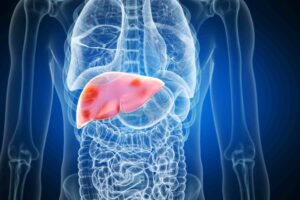Giorgia Guglielmi
Giorgia Guglielmi is a freelance science writer based in Basel, Switzerland. Specializing in life sciences, medicine, and the relationship between science and society, she has published numerous articles in outlets including Nature, Science, and Scientific American. She holds a PhD in biology from the European Molecular Biology Laboratory and a Master’s in Science Writing from the Massachusetts Institute of Technology. She has received recognition for her work, including the John Kendrew Award in 2020 and an ERC-funded FRONTIERS Media Fellowship in 2025. She has also led lectures and workshops on science communication at institutions such as Harvard University and the University of Zurich.
Gastroenterology
The findings of a recent study suggest that antimicrobial-resistance mutations in commensal bacteria can make the microbiota surprisingly resilient to antibiotics.
Gastroenterology, Pediatrics
The findings of a recent study suggest that the gut microbiota contributes to alterations in the levels of metabolites associated with ulcerative colitis.
Gastroenterology
The findings suggest that microbial metabolites can help to predict who is at increased risk of infection after liver transplant. The results may also help to inform microbiota-targeted therapies.
Scientific research
Socially transmissible microbes may influence human health and play a hidden role in social evolution.
Neuroscience
By examining the gut-brain-microbiota axis in typical neurodevelopment, the findings could pave the way for identifying biomarkers for cognition and brain development.
Gastroenterology
The findings of a recent study shed light on why gut microbiota diversity protects against infection. The results may also inform the design of pathogen-resistant microbial communities.
Gastroenterology, Oncology
The findings of a recent study suggest that the crosstalk between gut microbes and the host’s immune system can influence the body’s defenses during cancer therapy.
Neuroscience, Pediatrics
The findings of a recent study suggest that L. reuteri eases social difficulties in autistic children.
Oncology
The findings of a recent study suggest that modulating the gut microbiota in people with liver cancer can improve their health outcomes after surgery.
Gynecology
The findings of a recent study suggest that in bacterial vaginosis, certain vaginal microbes disrupt the protective glycans on vaginal epithelial cells, altering processes that mediate cell turnover, death and…











